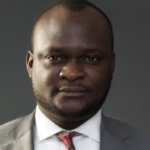COP27: A CONVERSATION ON CLIMATE JUSTICE AND NIGERIA’S READINESS
The Conference of the Parties (COP) is the supreme body of the 1992 United Nations Framework Convention on Climate Change (“UNFCCC” or the “Convention”) and is responsible for keeping under regular review the implementation of the Convention and any related legal instruments that the COP may adopt. The COP also makes, within its mandate, decisions necessary to promote the effective implementation of the Convention.
From 6-20 November, the Egyptian coastal city of Sharm el-Sheikh hosted the 27th COP (COP27) with negotiators from member States to the Convention deliberating majorly on issues about the importance of accessing and utilizing the best available science for effective climate action and policymaking; enhancing the ambition and implementation of the reduction of emissions of greenhouse gases including transitions to low-emission and climate-resilient development in line with the principles and objectives of the Convention, the Kyoto Protocol and the Paris Agreement; emphasizing the importance of protecting, conserving and restoring water and water-related ecosystems, including river basins, aquifers, and lakes; matters as to loss and damages arising from climate change and the need for reparation; climate finance; and technology transfer and development.
Previous COP meetings have primarily aimed to pressure the big emitting nations to set ambitious targets for decarbonization. Egypt being the host to COP27, the avenue was an opportunity for developing nations to advocate for their interests in the clean energy transition.
CLIMATE REPARATION
From the use of coal by cavemen to its use by Romans in England in 200AD and the use of coal by the Hopi Indians for their pottery to the invention of the steam engine by James Watt, nearly three hundred years of burning fossil fuels have produced much of the wealth of the developed world, and now the resulting greenhouse gases are heating the planet,
The highlight of COP27 was that climate reparation found its way into the agenda of the conference, and for the first time, this conversation was taken seriously. It is worth noting that under the Convention the parties understand that “the largest share of historical and current global emissions of greenhouse gases has originated in developed countries, and that per capita emissions in developing countries are still relatively low and that the share of global emissions originating in developing countries will grow to meet their social and development needs”.
Please do not treat the foregoing as legal advice as it only represents the public commentary views of the authors. All enquiries on this Brief should please be directed at:
Oyeyemi Oke
Partner
oyeyemi.oke@ao2law.com
Joseph Omoba
Senior Associate
joseph.omoba@ao2law.com
Michael Ejiofor
Associate
michael.ejiofor@ao2law.com
Olajide Akibu
Associate
olajide.akibu@ao2law.com







